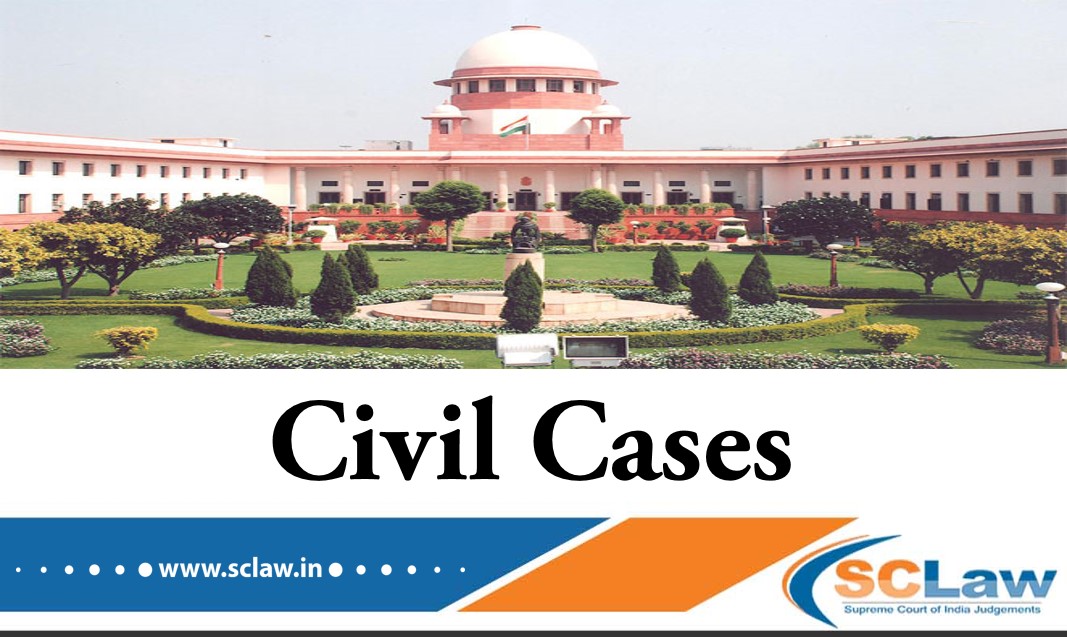HELD indication regarding non-creamy layer status in the caste certificate is one of substance and not of form. The very eligibility to seek the benefit of reservation would depend upon the non-creamy layer status.
SUPREME COURT OF INDIA DIVISION BENCH UNION OF INDIA AND OTHERS — Appellant Vs. PROBIR GHOSH AND OTHERS — Respondent ( Before : Hemant Gupta and V. Ramasubramanian, JJ. )…
Policy of the State of Rajasthan to restrict the benefit of bonus marks only to such employees who have worked under different organizations in the State of Rajasthan and to employees working under the NHM/NRHM schemes in the State of Rajasthan, cannot be said to be arbitrary.
SUPREME COURT OF INDIA DIVISION BENCH SATYA DEV BHAGAUR AND OTHERS — Appellant Vs. THE STATE OF RAJASTHAN AND OTHERS — Respondent ( Before : L. Nageswara Rao and B.R.…
Kerala Motor Vehicle Rules,1989 – Rule 174(2)(c) – Under Rule 174(2)(c) of Kerala Motor Vehicle Rules,1989 – discretion will have to be exercised reasonably, fairly as the facts and circumstance would clearly demonstrate – For instance, where the vehicle sought to be substituted is marginally and inconsequentially older than the vehicle covered under the permit, the Authority may perhaps be justified in permitting such an application
SUPREME COURT OF INDIA DIVISION BENCH REGIONAL TRANSPORT AUTHORITY AND ANOTHER — Appellant Vs. SHAJU ETC. — Respondent ( Before : K.M. Joseph and Pamidighantam Sri Narasimha, JJ. ) Civil…
Order of High Court Granting Interim Relief – Quashing of -High Court has as such made the proceedings before the DRAT infructuous, as after the impugned judgment and order nothing further is required to be decided by the DRAT – Therefore, the High Court has exceeded in its jurisdiction by passing the impugned judgment and order
SUPREME COURT OF INDIA DIVISION BENCH SRS ADVERTISING & MARKETING PRIVATE LIMITED AND OTHERS — Appellant Vs. MR. KAMAL GARG AND ANOTHER — Respondent ( Before : M.R. Shah and…
Maharashtra Co-operative Societies Rules, 1961 – Rule 107(14)(i) – Setting aside of auction sale – No sale shall be set aside on the ground of material irregularity, mistake or fraud unless the Recovery Officer is satisfied that the applicant had sustained substantial injury by reason of such irregularity, mistake or fraud.
SUPREME COURT OF INDIA DIVISION BENCH DEENADAYAL NAGARI SAHAKARI BANK LIMITED AND ANOTHER — Appellant Vs. MUNJAJI AND OTHERS — Respondent ( Before : M.R. Shah and B.V. Nagarathna, JJ.…
ESI – Doctor has clearly stated that the appellant has suffered from functional loss of 100% of the right upper limb – Commissioner for Workmen’s Compensation was right in holding that the disability of the appellant will have to be treated as 100% disability – High Court committed an error holding that the disability ought to have been assessed as 70% partial permanent disability instead of 100% – Appeal allowed.
SUPREME COURT OF INDIA DIVISION BENCH ARJUN S/O. RAMANNA @ RAMU — Appellant Vs. IFFCO TOKIO GENERAL INSURANCE CO. LIMITED AND ANOTHER — Respondent ( Before : Ajay Rastogi and…
Amazon vs Reliance – Resumption of NCLT Proceedings – Single Judge of the Delhi High Court, to consider all the contentions raised by both the parties in this regard and pass appropriate order as to continuation of the NCLT proceedings beyond the stage mentioned at serial no. 8 and other regulatory approvals expeditiously, uninfluenced by any observations made herein.
SUPREME COURT OF INDIA FULL BENCH FUTURE COUPONS PRIVATE LIMITED AND OTHERS — Appellant Vs. AMAZON.COM NV INVESTMENT HOLDINGS LLC AND OTHERS — Respondent ( Before : N.V. Ramana, CJI,…
Hindu Marriage Act, 1955 – Section 13(1)(ia) and 13(1)(ib) – Divorce on the grounds of cruelty and desertion by wife – From June 2009 wife left the matrimonial home with all her personal belongings and consistently refused to consummate the marriage, thereby causing mental agony to the husband – – From the evidence on record, an inference can be drawn that there was animus deserendi on the part of the wife
SUPREME COURT OF INDIA DIVISION BENCH DEBANANDA TAMULI — Appellant Vs. SMTI KAKUMONI KATAKY — Respondent ( Before : Ajay Rastogi and Abhay S. Oka, JJ. ) Civil Appeal No.…
Cancellation of lease – A person who misleads the Development Authority in obtaining allotment of a plot is not entitled to any relief – HELD Cancellation of lease – A person who misleads the Development Authority in obtaining allotment of a plot is not entitled to any relief -Cancellation of lease – – Filing of a false affidavit disentitles the plaintiff for any equitable relief – any irregularity in the process of cancellation stands cured with Chief Executive Officer granting permission.
RAVINDRA KUMAR SINGHVI (DEAD) THR. LRS. — Respondent ( Before : Hemant Gupta and V. Ramasubramanian, JJ. ) Civil Appeal No. 382 of 2012 Decided on : 15-02-2022 Cancellation of…
Plea of juvenility has to be raised in a bonafide and truthful manner. If the reliance is on a document to seek juvenility which is not reliable or dubious in nature, the appellant cannot be treated to be juvenile keeping in view that the Act is a beneficial legislation – Appellant cannot be given benefit of juvenility – HELD birth certificate issued by corporation or municipal authority or a panchayat is a relevant document to prove the juvenility -Appeal dismissed.
SUPREME COURT OF INDIA DIVISION BENCH MANOJ @ MONU @ VISHAL CHAUDHARY — Appellant Vs. STATE OF HARYANA AND ANOTHER — Respondent ( Before : Hemant Gupta and V. Ramasubramanian,…















